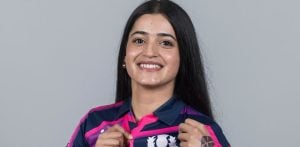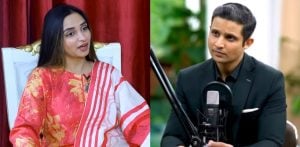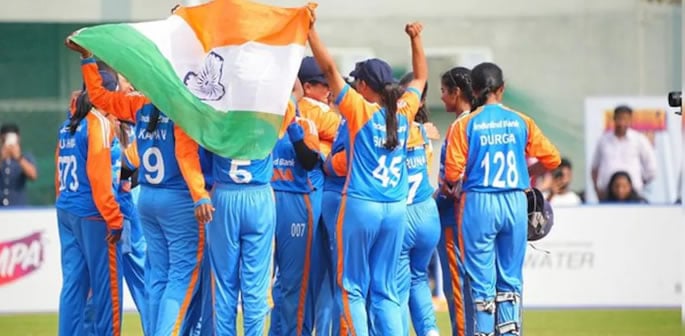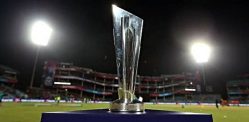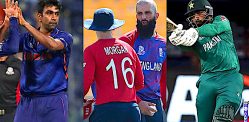“This is the biggest moment of my and my team's life."
Visually impaired Indian women are capturing the spotlight at the inaugural Blind Women’s T20 Cricket World Cup, showcasing talent that has often been overlooked.
Many come from rural villages, farming families, and small-town hostels, discovering cricket only in recent years.
The T20 tournament, featuring six teams, India, Nepal, Pakistan, Sri Lanka, Australia, and the USA, began on November 11 in Delhi, with initial matches held in Bengaluru before moving to Colombo, Sri Lanka for the knockouts.
For these athletes, every run, every catch, and every boundary is a testament to resilience, and India’s squad has emerged as a dominant force, winning all five group-stage matches.
The Indian team comprises 16 players and many were introduced to cricket through schoolteachers, disability organisations, or local community camps, navigating cultural, linguistic, and societal barriers along the way.
Manager Shika Shetty said: “Most of the players are from rural backgrounds.
“Language and culture were barriers, families and teachers were often unwilling to let them pursue the sport, and even introducing the rules of blind cricket took time.
“But now they are all competing with pride.”
Blind cricket uses a plastic ball with metal bearings that jingle, allowing players to track it by sound.
Players are classified by sight: B1 (fully blind), B2, and B3, and teams must field a mix of all three.
Underarm bowling along the ground ensures safety. B1 batters use runners, and each run they score counts double.
India’s dominance in the group stages has secured an early semifinal berth, positioning them as clear favourites heading into the knockouts.
Beyond results, the tournament offers a platform to highlight the determination and skill of women often excluded from mainstream sports.
From Rural Roots to National Pride

Deepika TC, captain of the Indian team, embodies the journey of transformation blind cricket offers.
A Karnataka native who lost her sight as a baby, Deepika grew up in a farming family, initially unaware that sports could shape her life.
She discovered cricket through specialised schools where teachers encouraged her hesitant participation.
Over time, the sport gave her purpose, direction, and confidence.
She said: “This is the biggest moment of my and my team’s life.
“Earlier this month, the sighted Indian women’s cricket team won the World Cup in Navi Mumbai, and we want to make it a double this month.”
She also acknowledged the support from established cricketers, adding that Indian women’s World Cup winner Jemimah Rodrigues and men’s Test captain Shubman Gill had been especially meaningful.
Vice-captain Ganga Kadam had a different path.
One of nine siblings, she was enrolled in a school for the blind by her father to secure a stable future.
Cricket began as a casual pursuit until a mentor encouraged her to take it seriously. Learning to trust sound, timing, and orientation posed significant challenges, but her persistence paid off.
At 26, Ganga inspires visually impaired girls in her village to explore sports, showing that dedication can redefine expectations.
Anekha Devi was born partially blind. Encouraged by her uncle, she attended a blind cricket camp in Delhi after school.
She recalled: “Early sessions were overwhelming, with unfamiliar voices and techniques.”
Rapid adaptation and a keen grasp of the audible ball system propelled her to the national team within two years. Her motivation is now to become the role model she lacked growing up.
A Platform for Women’s Blind Cricket
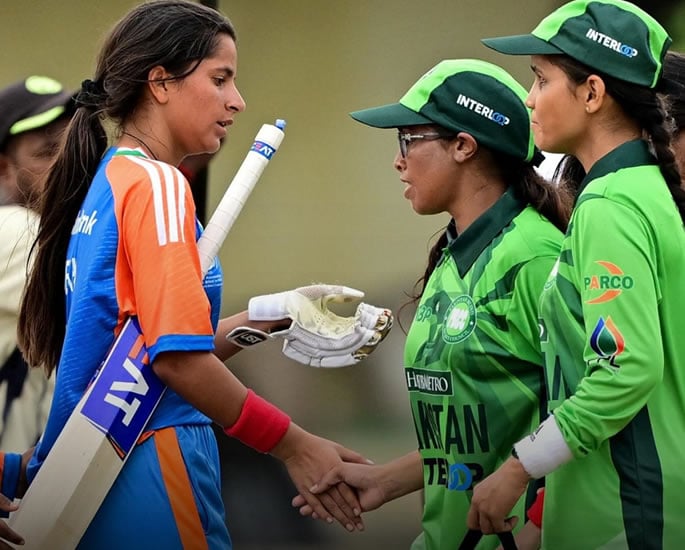
The inaugural Blind Women’s T20 World Cup marks a milestone in a sport historically dominated by men.
Headquartered in London, the World Blind Cricket Council (WBCC) has overseen blind cricket since 1996, with the first men’s 50-over World Cup held in 1998 and the inaugural T20 World Cup in 2012.
India’s women’s blind cricket structure remains young, with the Cricket Association for the Blind in India (CABI) founded in 2011.
Systematic scouting for a women’s national team began only in 2019, culminating in their first international match in 2023 and a gold medal at the IBSA World Games in Birmingham the same year.
Mahantesh GK, CABI’s chairperson, said:
“We believed we were doing injustice by not giving visually impaired women the same opportunities as the men.
“Creating this tournament took huge effort. Money was a challenge. Getting teams was a challenge. But we persisted.
“Now the response from both the central and many state governments, sponsors, the corporate world and the public has been remarkable. The future will be much bigger.”
The tournament also represents a significant leap in visibility for the sport.
Semifinals and finals in Colombo are streamed live on CABI’s YouTube channel and state-run Prasar Bharati platforms, while India’s matches are broadcast on national broadcaster Doordarshan.
This exposure ensures families, sponsors, and aspiring players can witness the skill and dedication of women’s blind cricket firsthand.
Coach Shetty believes the impact will extend beyond the field:
“Now that people have watched these matches on livestreams and seen these women perform, families will feel more confident about allowing their daughters to play.
“It will not feel like an unknown path anymore.”
As more countries field women’s teams, the standard and global footprint for the sport are expected to grow rapidly, signalling a new era for blind cricket internationally.
The inaugural Blind Women’s T20 World Cup is a declaration that talent and determination can transcend disability, geography, and societal norms.
The Indian team’s journey from rural towns to the global stage exemplifies resilience, discipline, and the transformative power of sport.
With growing visibility and institutional support, the momentum generated by this World Cup could redefine the future for women’s blind cricket worldwide.






































